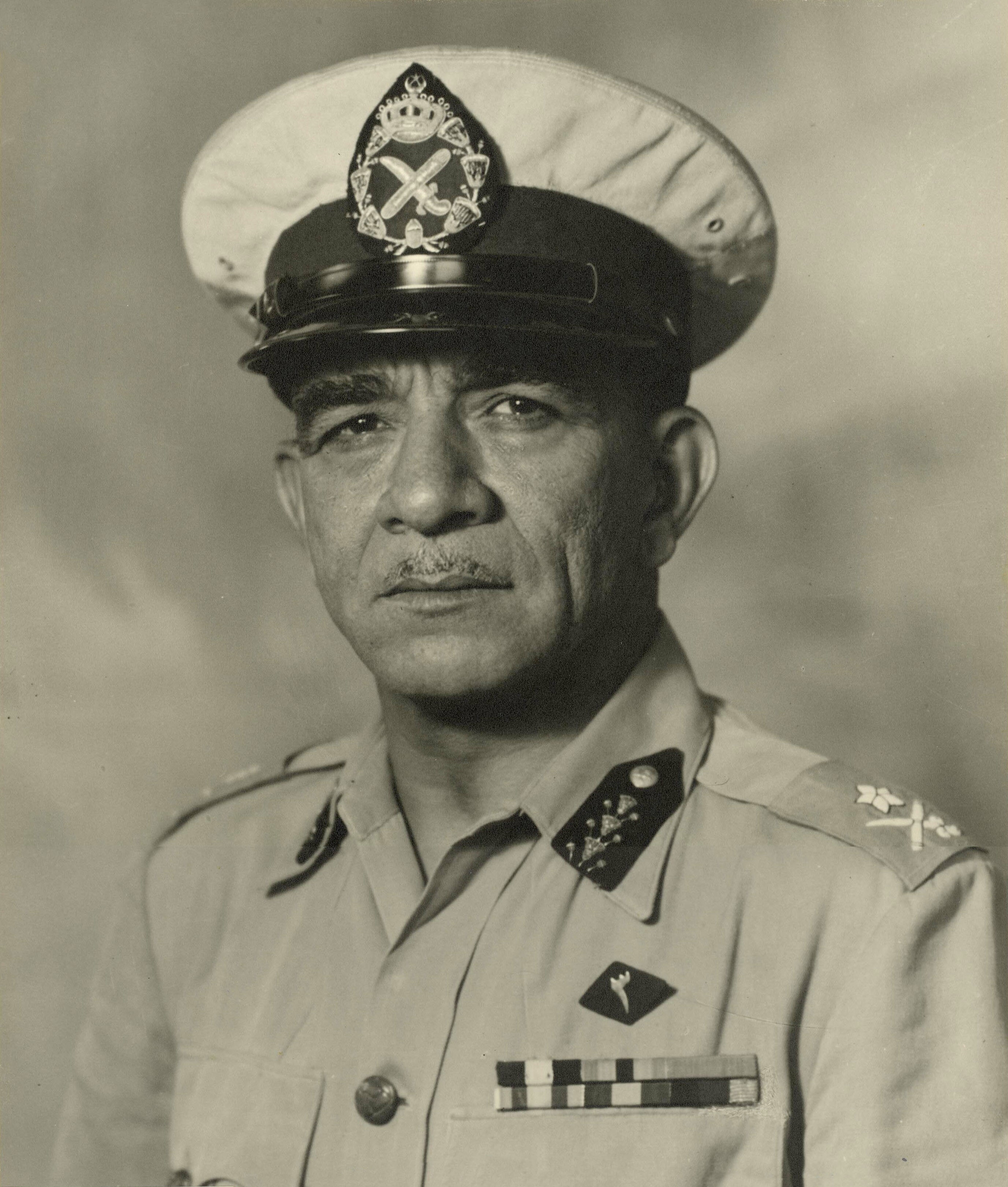Muhammad Naguib
| Mohamed Naguib محمد نجيب |
|
|---|---|
 |
|
| 1st President of Egypt | |
|
In office 18 June 1953 – 14 November 1954 |
|
| Prime Minister |
Himself Gamal Abdel Nasser |
| Preceded by | Fuad II (as King of Egypt and the Sudan) |
| Succeeded by | Gamal Abdel Nasser |
| 30th Prime Minister of Egypt | |
|
In office 8 March 1954 – 18 April 1954 |
|
| President | Himself |
| Preceded by | 1st President of Egypt |
| Succeeded by | Gamal Abdel Nasser |
|
In office 17 September 1952 – 25 February 1954 |
|
| Monarch | Fuad II (until 18 June 1953) |
| President | Himself (from 18 June 1953) |
| Preceded by | Ali Maher |
| Minister of War and Navy | |
|
In office 17 September 1952 – 18 June 1953 |
|
| Prime Minister | Himself |
| Preceded by | Ali Maher |
| Succeeded by | Abdel Latif Boghdadi |
| Personal details | |
| Born |
19 February 1901 Khartoum, Anglo-Egyptian Sudan |
| Died | 28 August 1984 (aged 83) Cairo, Egypt |
| Nationality | Egyptian & Sudanese |
| Political party | Military/Liberation Rally |
| Spouse(s) | Aziza M. Labib (died in 1970) |
| Religion | Sunni Islam |
| Awards |
Order of Nile Order Egypt |
| Military service | |
| Allegiance |
|
| Service/branch | Egyptian Army |
| Years of service | 1918 - 1954 |
| Rank |
|
| Battles/wars | 1948 Arab-Israeli War |
Mohamed Naguib (Arabic: محمد نجيب, Egyptian Arabic pronunciation: [mæˈħæmmæd næˈɡiːb]; 19 February 1901 – 28 August 1984) was the first President of Egypt, serving from the declaration of the Republic on 18 June 1953 to 14 November 1954. Along with Gamal Abdel Nasser, he was the primary leader of the Egyptian Revolution of 1952, which ended the rule of the Muhammad Ali Dynasty in Egypt and Sudan.
Naguib's full name was Mohamed Naguib Yousef Qotp Elkashlan; he was born on 19 February 1901 in Khartoum, Sudan, which was united with Egypt at the time. He was the eldest of nine children of an Egyptian, Youssef Naguib, and a Sudanese woman Zohra Ahmed Othman. His family name, "Elkashlan," was popular in Egypt at that time, due to well-known scientific personalities such as Saad Elkashlan and Abdulsamad Elkashlan. He came from a long line of army officers; his father served in the Egyptian army in Sudan.
Naguib spent his formative years in Sudan, where, as a child, ostriches and monkeys were his playmates, in a house decorated with hunting trophies like elephant tusks, tiger-skin rugs and rhinoceros and gazelle heads on the wall. Naguib's favourite game, however, was playing at soldiers with his younger brother, Ali. Having built a toy fortress in the front yard, Naguib would spend hours conquering inches of land with his toy soldiers.
Nevertheless, Naguib's father did not want his sons to follow in his footsteps, believing from his own experience as an officer in the Egyptian army that the army at that time was little more than a group of auxiliaries waiting for British orders. He believed that Naguib could serve Egypt better in civilian life, and he even had Ibrahim Urabi, son of the 1882 revolutionary Ahmed Urabi, speak to Naguib and caution him that by joining the military he would become only "a supervisor in the service of the British."
...
Wikipedia
